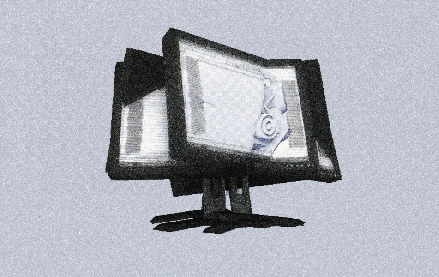Independent ad tech continues to tick along even as storm clouds gather overhead

The cohort of public ad tech companies published their Q3 earnings during the last two weeks. While results are mixed with the arrows (largely) pointing in the right direction, an air of caution permeates the sector.
Among investors’ concerns are: signal-loss (read, “the death of the cookie“), disruption in the dynamics of the ad tech supply chain (i.e. intensifying competition), plus an overall softening of the media market — albeit this issue faces the entire industry.
Now, let’s look at the report cards of the leading media-trading platforms among them to gauge the pulse of the marketplace.
Last week, The Trade Desk posted Q3 revenues of $493 million, an increase of 25% year-on-year, with the demand-side platform trumpeting support for its cookie-replacement tool UID 2.0 and OpenPath, its flagship effort to garner more efficient media-pricing.
The DSP further issued guidance of 22% growth for the closing quarter of the calendar year, but while Q3’s numbers are impressive, the DSP’s stock was down as much as 30% in the 24 hours after it disclosed the latest numbers.
This was primarily on the back of it warning of a “transitory cautiousness around certain advertisers.” The slowdown was attributed to macro-economic conditions with The Trade Desk not the only member of this cohort to concede that not all arrows are pointing up and to the right. According to one source, who requested anonymity, “TTD’s stock was previously priced on ‘perfect’ market conditions, this is just a correction.”
Elsewhere, Magnite the largest independent supply-side platform, posted Q3 revenue of $150.1 million, a rise of 3% year-on-year, with its guidance for the closing quarter of the year between $158 million and $162 million. According to Magnite CEO, “It’s worth noting that our guidance reflects some uncertainty in the macro environment, in particular, the potential impact from the Mideast [sic] conflict.”
Last week also saw fellow SSP PubMatic post $63.7 million in revenue for the same period, compared to $64.5 million in the same period 12 months prior, a further indication of a widespread softening of the advertising market in 2023.
Similarly, the prior week saw Criteo, which posted Q3 revenue of $469 million, up 5%, note that its sales team “were not seeing an early start to the holiday season” in terms of advertisers’ willingness to buy media, according to CEO Meghan Clarken.
Amid such heightened competition, it is worth pondering whether this will further intensify competition from the respective disintermediation initiatives from SSPs, and DSPs alike.
One industry analyst, who requested anonymity as they were not cleared to speak with the press, observed how any such competition between the likes of Magnite’s ClearLine, or PubMatic’s Activate would likely lead to a compression in revenue.
“New entrants or more agencies/publishers looking to in-house DSPs, is likely to result in lower take-rates,” they noted, citing how some companies are willing to significantly drop take-rates to get ahead in the CTV market where a land grab is underway.
Another green shoot of hope for such companies is the retail media sector, one where Criteo — which generated less than 50% of its revenue from (cookie-dependent) ad retargeting for the first time in Q3 — has placed the majority of its bets.
However, this adjustment will similarly lead to a reduction in its revenue from take-rates, as Criteo’s large-scale retail clients move to “a SaaS-like fee structure,” an issue that is likely to impact revenue forecasts for the early part of 2024. Albeit, this is a temporary transition that will enable longer-term spending on its retail media platform, according to Criteo’s leadership.
All this comes as ad tech companies, both buy- and sell-side, prepare to grapple with the oncoming implications of Google starting to sunset the third-party cookie in its Chrome web browser from January — and projected to be completed by the close of the year — with the leadership of all companies acknowledging challenges given the oncoming “uncertainty.”
Given the note of caution struck amid the (usually bountiful) Q4 calendar period, it’s probably worth betting that things will likely get a bit leaner before they get better for the entire ad tech sector.
More in Media

Earnings from social and search players signal that AI will be a long-play investment
Giants like Google, Meta and Microsoft say investors and advertisers might have to wait longer for AI to generate a better return on investment.

Why some publishers aren’t ready to monetize generative AI chatbots with ads yet
Monetization of generative AI chatbot experiences is slow going. Some publishing execs said they’re not ready to add advertising to these products until they scale or can build a subscription model first.

Media Briefing: Publishers who bet on events and franchises this year are reaping the rewards
Tentpole events and franchises are helping publishers lock in advertising revenue.









